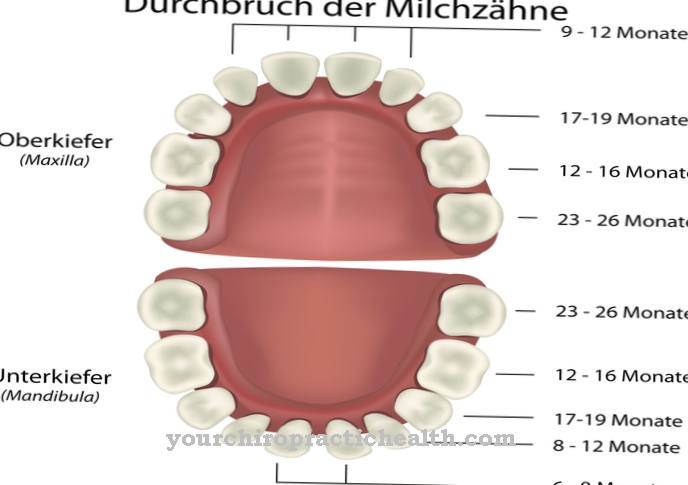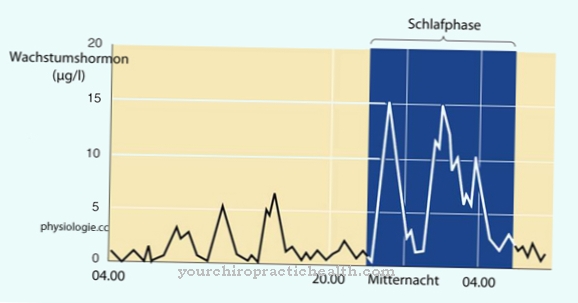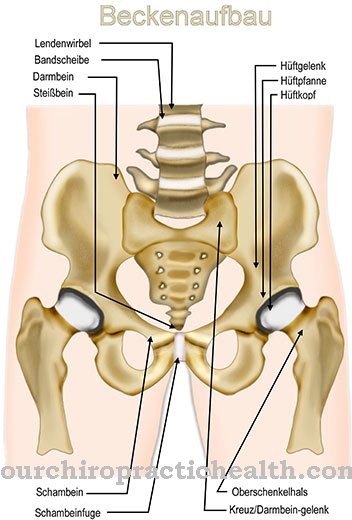Abdominal pain in pregnancy are a concomitant phenomenon that can vary in severity in most expectant mothers. Mostly it is a slight pull, comparable to menstrual cramps. Sometimes the pain can become crampy. As a rule, they do not have a negative impact on the child, they are mostly a response to the additional load on the body. However, if the pain worsens and occurs frequently, a medical evaluation is advisable.
How abdominal pain can manifest itself during pregnancy
Abdominal pain in pregnancy can have many faces. A tug in the abdomen can be the first harbinger of pregnancy if the expectant mother doesn't even know it. The pulling pain on the uterine ligaments is one of the most typical complaints during pregnancy. This form of pain can also turn into cramps on occasion. The uterine ligaments hold the uterus in an upright and stable position.
When pregnancy does occur, over time the uterus changes size and the ligaments need to stretch. This can lead to pain. They are comparable to menstrual cramps or sore muscles. Another cause of the discomfort can be digestive problems. This is a regular problem during pregnancy and causes mild cramps.
This is due, among other things, to the changed hormone balance in the body and the intestines become sluggish. As the pregnancy progresses, the child grows and needs more space in the womb. This moves organs. Abdominal pain during pregnancy and cramp-like pain are therefore not uncommon.
When is the abdominal pain dangerous?
If abdominal pain accumulates and reaches high levels of pain early on, it can also be dangerous. In the first few weeks, abdominal pain and bleeding may indicate a miscarriage or an ectopic pregnancy. In these cases, medical help is essential.
A late miscarriage in the second trimester of pregnancy can also be heralded by cramping abdominal pain. However, miscarriages are always associated with bleeding. If abdominal pain occurs in the second half of pregnancy, it can be a sign of HELLP syndrome. This is a serious complication of pregnancy and can be recognized by severe pain in the upper right abdomen.
The life of mother and child is in danger and an immediate caesarean section is necessary. The abbreviation stands for blood fall, increased liver values and declining blood clotting.
Do not confuse it with labor!
When abdominal pain occurs in advanced pregnancy, many women think it is the beginning of labor and fear premature delivery. However, this is only rarely the case. Nevertheless, from the beginning of the second half of pregnancy, the first labor pains occasionally occur. The first contractions of the uterus occur and the abdomen becomes hard.
These then expand to the entire uterus from the 36th week of pregnancy and are the first training for the upcoming birth. However, this is usually not yet due. The practice contractions come at irregular intervals and in most cases are not very painful. After a minute they disappeared again.
Labor contractions usually also pull in the back, increase to a climax and then subside again. The whole thing is repeated at regular intervals. As long as this is not the case, the abdominal pain and cramps are not labor pains either.
What helps with abdominal pain during pregnancy?
Most women want to avoid medication as best they can during pregnancy. Abdominal pain is usually easy to get under control with home remedies that do not harm the baby. Warmth is especially helpful. On the one hand, it works well from within. That means drinking a lot of tea. Teas such as peppermint, ginger and fennel help very well and have a pain-relieving effect.
Fennel tea is especially suitable for stomach cramps and abdominal pain. Ginger tea relaxes the muscles in the abdominal area and soothes the irritated stomach lining. At the same time, a hot water bottle is recommended, but it should not be too hot, otherwise the pain could get worse. It also helps to wrap the hot water bottle in a towel.
The excess stomach acid is often a reason for the discomfort. It helps to eat a few slices of dry white bread. The effect of the bread is like a sponge and the stomach is less acidic. In addition to this or as an individual measure, natural honey is suitable. The ingredients have a calming and regenerating effect on the gastric mucosa.
Take a teaspoon before going to bed and the mucous membrane can relax overnight. Caraway seed oil should be used for relaxing massages for abdominal pain. The active ingredients of the oil have a very digestive and anti-cramping effect, just like lemon balm oil.
Better to see a doctor once more than once too little
Basically, it can be said that abdominal pain and cramps are one of many side effects of every pregnancy. It starts with the morning sickness that many pregnant women report. However, the complaints should not always be taken lightly, especially if they occur frequently and intensely.
Going to the doctor once again does no harm, and doctors also have absolute understanding for double caution during pregnancy. If the abdominal pain is accompanied by other symptoms, such as discharge and bleeding, a doctor should be consulted to be on the safe side.



























